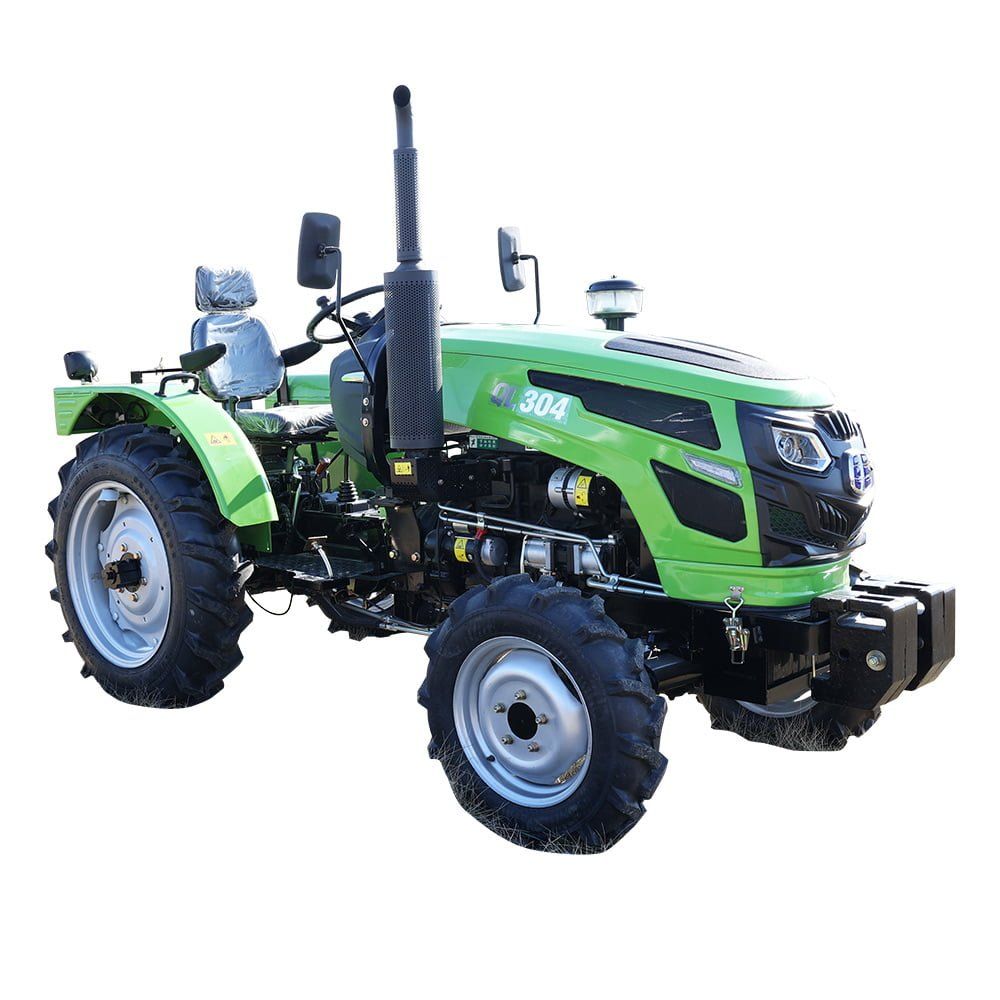E-mail: [email protected] WhatsApp: 8618266768780
Tracteurs agricoles modernes : efficacité et innovation
In the ever-evolving world of agriculture, modern farm tractors have emerged as powerful allies for farmers. These mechanized workhorses are at the forefront of technological advancements, driving efficiency and innovation in the agricultural sector. In this comprehensive 8000-word article, we will delve into the world of modern farm tractors, exploring their evolution, the cutting-edge features they offer, their impact on farming practices, and the frequently asked questions to provide a well-rounded understanding of this crucial agricultural machinery.
Evolution of Modern Farm Tractors
From Horsepower to Horsepower
The journey of farm tractors dates back to the early 19th century when steam-powered machines were first introduced. However, it wasn’t until the internal combustion engine arrived that tractors truly transformed agriculture. Learn how these machines evolved from steam giants to the modern diesel and electric tractors we see today.
The Role of Henry Ford
Discover how Henry Ford’s innovations in tractor manufacturing revolutionized the farming industry. His vision of making tractors affordable and accessible to every farmer played a pivotal role in shaping the modern agricultural landscape.
Features and Advancements
Power and Efficiency
Modern farm tractors are renowned for their incredible power and efficiency. Explore the various engine types, including diesel and electric, and how they impact a tractor’s performance. We’ll also discuss the importance of horsepower, torque, and transmission systems in boosting productivity on the farm.
Agriculture de précision
Precision agriculture is the driving force behind increased crop yields and reduced resource wastage. Find out how modern tractors are equipped with GPS technology, sensors, and automated systems to perform tasks with pinpoint accuracy. Learn about precision planting, variable-rate fertilization, and more.
Ergonomie et Confort
Farming can be a physically demanding job. Discover how modern tractors prioritize the operator’s comfort and well-being with ergonomic design, climate-controlled cabs, and intuitive controls. These features not only enhance productivity but also reduce operator fatigue.
Durabilité environnementale
As the world grapples with environmental concerns, modern tractors are also stepping up to the challenge. Explore the eco-friendly features of tractors, such as reduced emissions, alternative fuels, and their role in sustainable farming practices.
Impact on Farming Practices
Productivité accrue
Modern tractors are the workhorses of the agricultural world. Learn how they enable farmers to complete tasks faster and more efficiently, from plowing and planting to harvesting. This increased productivity is essential to meet the growing global demand for food.
Efficacité du travail
The automation and technology integrated into modern tractors reduce the need for manual labor. Understand how this not only saves time but also addresses the labor shortage issue that many farming communities face.
Crop Diversification
Modern tractors are versatile and can be adapted for various tasks. Discover how this versatility allows farmers to diversify their crops and explore new agricultural opportunities.
Impact environnemental réduit
Explore the ways in which modern tractors are contributing to environmentally responsible farming by reducing soil erosion, minimizing chemical usage, and conserving resources.
FAQ
Q1: What is the average lifespan of a modern farm tractor?
Modern tractors are built to last. On average, a well-maintained tractor can serve a farmer for 20 to 30 years. However, this can vary depending on usage, maintenance, and the tractor’s brand and model.
Q2: How do I choose the right tractor for my farm?
Selecting the right tractor involves considering factors such as farm size, the type of crops you grow, and your budget. It’s essential to consult with experts and assess your specific needs before making a decision.
Q3: Are modern tractors compatible with older implements?
Many modern tractors are designed with compatibility in mind. However, it’s essential to check compatibility before purchasing or using older implements with a newer tractor. Adapters may be required in some cases.
Q4: What are the maintenance requirements for a modern farm tracteur?
Regular maintenance is crucial to keep your tractor in top shape. This includes oil changes, filter replacements, and inspections of vital components. Manufacturers provide detailed maintenance schedules in the tractor’s manual.
Q5: Are electric tractors a viable option for small farms?
Electric tractors are gaining popularity for their eco-friendliness. While they may have higher upfront costs, they can be a viable option for small farms, especially if there are renewable energy sources available for charging.
Conclusion
Modern farm tractors have evolved from their humble beginnings into powerful, efficient, and eco-conscious machines that drive innovation in agriculture. Their impact on farming practices, productivity, and sustainability cannot be overstated. As technology continues to advance, we can expect even more exciting developments in the world of modern farm tractors, ensuring a brighter and more sustainable future for agriculture worldwide.
À propos de nous
Shandong Qilu Industrial Co., Ltd. est un fabricant et exportateur professionnel intégrant le développement et la production d'excavatrices, de chargeurs et de tracteurs. Nous fournissons le meilleur service, absolument.
Messages récents
Démo vidéo
-1.png)
Contactez-nous aujourd'hui !
Une question, un devis ou une demande ? Cliquez sur le bouton pour envoyer le message.
Qilu Industrial sera toujours là pour vous aider.


